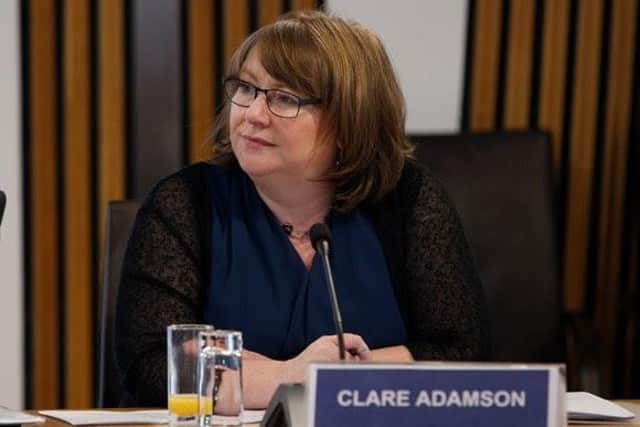Survivors asked for views on redress scheme for child abuse victims


The new legislation, which seeks to address the harm of historic abuse in care settings in Scotland, is being put under the spotlight by the Education and Skills Committee.
The proposed Redress for Survivors (Historical Child Abuse in Care) (Scotland) Bill, aims to create a statutory scheme for survivors to receive both payment and recognition of their traumatic experiences in care.
Advertisement
Hide AdAdvertisement
Hide AdCurrently an Advanced Payment Scheme is operating, and has paid £10,000 each to 417 people in its first year. However it ony applies to those who are terminally ill or aged 68 or over. The Scottish Government has said it wants to pass the new Redress Bill before March next year.
However the new scheme, as planned, has come in for criticism from opposition MSPs who are concerned that it risks letting organisations where abuse took place off the hook.
Committee Convener, Clare Adamson MSP said: “This is an important piece of legislation that seeks to provide practical measures to address the harm caused by historical child abuse in care in Scotland.
“The Bill aims to treat survivors with dignity and respect. The Scottish Government says it is part of facing up to the wrongs of the past with compassion.
“We want to hear views on whether the Bill will achieve what it sets out to do and whether the Bill will create an effective redress scheme for survivors.
“Our Committee, therefore, wants to hear from survivors whether the Bill meets those aspirations, where it is sensitive to survivors’ needs and delivers a scheme of meaningful redress.”
Survivors of abuse are being asked to give their views on who should be eligible for the scheme, the Bill’s definition of abuse, the timescales involved to define the abuse as “historic” and the levels of payments offered. They can also comment on the process, advice and support for applicants, and how to ensure that non-financial redress meets the needs of survivors.
Scottish Greens justice spokesperson John Finnie MSP has questioned the scheme saying it would likely pay out lower sums to survivors than if they took an organisation to court, and they would also have to give up their right to pursue a civil claim.
Advertisement
Hide AdAdvertisement
Hide AdHe said: “I’ve heard from upset and concerned survivors that the redress scheme risks letting organisations where abuse took place off the hook.
“The payments proposed as part of the redress scheme are substantially lower than survivors could receive if they pursued a civil claim in the courts, yet they would be barred from pursuing such a claim if they signed up to the scheme.
“I don’t doubt the Scottish Government’s good intentions in introducing the Bill, but it is vital that the payments do not simply act as a shield for organisations to avoid paying out larger sums of compensation."
The deadline for views is 2 October 2020.
A message from the Editor:Thank you for reading this story on our website. While I have your attention, I also have an important request to make of you.With the coronavirus lockdown having a major impact on many of our advertisers - and consequently the revenue we receive - we are more reliant than ever on you taking out a digital subscription.Subscribe to scotsman.com and enjoy unlimited access to Scottish news and information online and on our app. With a digital subscription, you can read more than 5 articles, see fewer ads, enjoy faster load times, and get access to exclusive newsletters and content. Visit https://www.scotsman.com/subscriptions now to sign up.
Our journalism costs money and we rely on advertising, print and digital revenues to help to support them. By supporting us, we are able to support you in providing trusted, fact-checked content for this website.
Joy Yates
Editorial Director